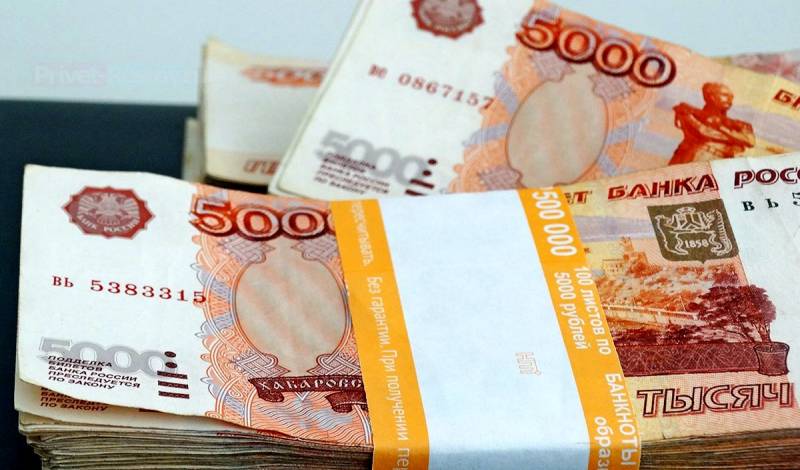Depositors bring down Russian banks
OFAS wants depositors to decide the fate of banks. Accredited agencies will help them in this, who will regularly draw up the official reliability rating of financial organizations. Bankers met the offer with hostility.
The antimonopoly department believes that it is not necessary to assess the stability of banks by the amount of capital and the state’s share in it. These indicators, taken into account by the Central Bank in the first place, were largely formal. Only last year, three large banks “flew”, and the state was forced to save them.
The FAS seems to want to cancel this vicious system. Experts believe that if the proposal is implemented, the Central Bank will take a formal decision on which bank is good and which is bad. In fact, rating agencies will become the ones to rule the ball. Moreover, it’s publicly, which, experts say, will exclude the corruption component, since the criteria for rating will be transparent. This cannot be said about the closed internal instructions of the Central Bank, by which it restricts banks in the provision of services. That is, the last word will be for investors.
The FAS argues that the Central Bank and the Ministry of Finance supported the idea, seeing in it an instrument to increase competition among banks. But the bankers spoke out negatively. They fear that if a bank that is good by the criteria of the Central Bank suddenly gets a low position in the public rating, then depositors will rush to withdraw money and a bank will come.
The concerns are clear. It is much easier to lure investors with a large weight of their own funds, and then to reset not only them, but also deposit accounts of citizens who have entrusted money. For example, a financial hole in the infamous Ugra bank turned out to be 140 billion rubles in size, and not 5-7, as they said earlier.
Representatives of banking circles offer their own solution to this problem. They advocate that the Central Bank does not restrict credit organizations in the right to accept deposits as a place in the rating, but sets the amount of contributions to the deposit insurance fund taking into account the position in it. The lower it is, the more you pay.
What decision will be made is difficult to predict. The lobbying opportunities of bankers are quite strong. It is possible that the idea will be cleaned, polished, and the ratings will turn out to be an insignificant formality that the Central Bank may or may not pay attention to. How is this happening now. But then the state will still bear responsibility for the loss of money in troubled banks. In the case of a rating, it can transfer part of this responsibility to investors.
The antimonopoly department believes that it is not necessary to assess the stability of banks by the amount of capital and the state’s share in it. These indicators, taken into account by the Central Bank in the first place, were largely formal. Only last year, three large banks “flew”, and the state was forced to save them.
The FAS seems to want to cancel this vicious system. Experts believe that if the proposal is implemented, the Central Bank will take a formal decision on which bank is good and which is bad. In fact, rating agencies will become the ones to rule the ball. Moreover, it’s publicly, which, experts say, will exclude the corruption component, since the criteria for rating will be transparent. This cannot be said about the closed internal instructions of the Central Bank, by which it restricts banks in the provision of services. That is, the last word will be for investors.
The FAS argues that the Central Bank and the Ministry of Finance supported the idea, seeing in it an instrument to increase competition among banks. But the bankers spoke out negatively. They fear that if a bank that is good by the criteria of the Central Bank suddenly gets a low position in the public rating, then depositors will rush to withdraw money and a bank will come.
The concerns are clear. It is much easier to lure investors with a large weight of their own funds, and then to reset not only them, but also deposit accounts of citizens who have entrusted money. For example, a financial hole in the infamous Ugra bank turned out to be 140 billion rubles in size, and not 5-7, as they said earlier.
Representatives of banking circles offer their own solution to this problem. They advocate that the Central Bank does not restrict credit organizations in the right to accept deposits as a place in the rating, but sets the amount of contributions to the deposit insurance fund taking into account the position in it. The lower it is, the more you pay.
What decision will be made is difficult to predict. The lobbying opportunities of bankers are quite strong. It is possible that the idea will be cleaned, polished, and the ratings will turn out to be an insignificant formality that the Central Bank may or may not pay attention to. How is this happening now. But then the state will still bear responsibility for the loss of money in troubled banks. In the case of a rating, it can transfer part of this responsibility to investors.
- Alexey Mikhailov
- http://privet-rostov.ru

Information